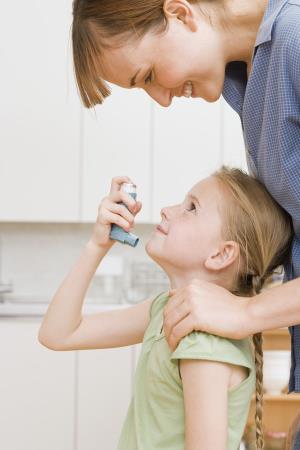Download the printable PDF here.
The symptoms
|
|
What it could be
|
What to do
Breathing difficulties as a result of severe nasal congestion. A blocked nose and cough before the onset of fever.
|
Babies can easily get colds as their immune systems are still immature. Most children average between 6 and 10 colds annually. |
Ensure your baby rests and is well-hydrated. To reduce nasal congestion, use a rubber bulb syringe to suck out excess mucus. Use a humidifier in your baby’s room or sit in steamy bathroom for 15 minutes to ease your baby’s breathing. Always get doctor’s advise on suitable medications for baby’s cold relief and particularly if a fever persists for 3 days. |
Noisy, laboured breathing or stridor - a high-pitched squawk when inhaling. Cold symptoms together with a deep barking cough.
Symptoms worsen at night. |
Croup results when the larynx (voice box) and trachea (windpipe) swell up. Croup is caused more often by a virus, affecting children from 6 months to 3 years. The measles, Haemophilus influenzae (Hib), and diphtheria vaccine protect against some serious forms of croup. |
See a doctor immediately to assess the severity of croup and advise treatment.
|
Out of breathe plus throat pain; coughing; wheezing drooling.
|
It could be your child has swallowed something.
|
If the object is sharp or potentially dangerous and even if baby seems fine – see a doctor quickly to remove it. If the object seems to have slid down into the stomach it should pass in the stool. But before then if your baby starts vomiting, refusing to eat and has fever –call your doctor. Also call if the object has not passed within a couple of days. It’s good to be trained in CPR in case of incidences of choking. |
Shortness of breath, coughing, chest tightness and wheezing. Symptoms more frequent at night and early morning. |
Asthma is when the lining of the lung’s airways become inflamed. The more inflamed, the more mucus collects, causing airways to narrow and tighten making breathing difficult. Asthma triggers include allergens like dust mites, cockroaches, mold, pollens, animal dander, tobacco smoke and air pollutants.
|
Asthma is a manageable chronic condition. Check with your doctor for a treatment plan and suitable medication. Also limit the exposure to allergens that trigger your child’s asthma.
|
Fast, difficult breathing, distinct cough, runny nose, low fever or wheezing. |
Bronchiolitis is a viral infection of the lungs that spreads through coughing and sneezing. Children between 3 and 6 months are likely to get this illness in winter or early spring. Give your baby plenty of liquids. Try a steam bath or a cool mist vapouriser to ease baby’s breathing.
|
Always seek medical advice on medications to take. |
Respiratory troubles and constant cough with worsening cold symptoms. Fever, chills, poor appetite, vomiting, headache, chest/stomach pain, wheezing and excessive fussing. |
Pneumonia is an infection of the lungs caused by a virus or bacteria. Typical after a cold or upper respiratory infection.
Hib, DTaP, MMR, flu, chicken pox, and pneumococcal vaccines can all help prevent pneumonia. |
See a doctor immediately to assess severity of pneumonia. A viral infection doesn’t respond to antibiotics with treatment limited to plenty of rest and liquids. A cool mist humidifier may help your baby breath easy. |
Breathing problems, wheezing and constant cold symptoms. Runny nose (mucus is thin and clear), sneezing, teary eyes (red and itchy), dry cough, circles under the eyes and itchy red skin rash.
|
Allergies are the immune systems reactions to allergens. These allergens whether ingested, inhaled or touched are regarded as a danger and the body releases chemicals (histamines) to fight them off resulting in the usual allergy symptoms. A severe allergic reaction is an anaphylactic shock. Allergens include food, drugs, insects, animal dander, dust mites, mold and pollen. |
Consult with a medical professional for treatment advice. Try and keep away from allergens that cause illness. In the evident of severe vomiting, diarrhea, hives or rashes, swelling of the lips and face -usually linked to food allergies seek medical attention.
If there are any severe respiratory difficulties, call for an ambulance urgently. |





 Publications
Publications
 Partners
Partners














